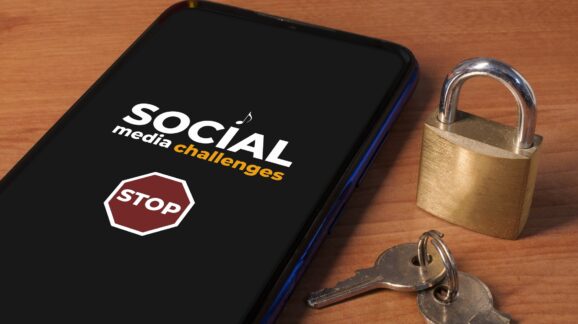US move to ban TikTok a troubling signal for our great experiment in self-determination

Photo Credit: Getty
As a part of a foreign aid funding package, the Senate passed a bill mandating TikTok’s divestiture from Chinese-based parent company, ByteDance. Biden signed the bill today, leaving 170 million US users of the platform to hope for a sale within nine months, with a possible three month extension. The Chinese government, whose approval for a sale would be necessary, has indicated it is not inclined to consent, thereby making the condition of sale a practical ban on the platform.
Some supporters of the bill point to concerns about American’s data ending up in the hands of the Chinese government. But protecting American’s online data will not be achieved by severing TikTok’s legally mandated obligations to the Chinese government. That’s because all of that same user information in question is readily available for purchase from commercial data brokers in global markets (US spy agencies avail themselves of the opportunity regularly). Instead of potentially demanding data from ByteDance, the CCP will simply buy it. If that information is as valuable as supporters of the bill contend, the CCP will have every incentive to do so. This bill does nothing to prevent that transfer of information.
The other objective cited by supporters of the bill is to thwart what the New York Times recently described as the Chinese Communist party’s ability to, “sow discord and spread disinformation” in the US via the TikTok platform. But just as with the New York Times’s ability to sow its own share of discord and spread what some believe to be misinformation, the free flow of information is a part of the messy, constitutionally protected, and crucial free speech tradition of this country.
There is scant evidence that either the CCP or ByteDance has ever attempted to push communist propaganda in the US. In fact, as my colleague, James Broughel, recently wrote, TikTok, “has leveled the playing field through its superior use of hashtags and its algorithm’s ability to surface content based on engagement with internet trends rather than metrics indirectly tied to follower count.”
But it’s true that TikTok certainly could start sacrificing its normal recommendation practices to favor propaganda through the platform. What is the correct policy reaction to that possibility?
One mark of a free society is protection of the most controversial, unpopular speech. Supporters of the bill often point out that the US TikTok version of the platform is banned in China and instead a more educational, domestically patriotic version called Douyin, that restricts contrarian viewpoints, is on offer.
That, of course, is exactly the point. The United States is not China. Here, we do not allow our government to decide which ideas are allowed to be discussed, debated, or refuted in civil discourse. The foundational nature of free speech is reflected in its guarantee being the First Amendment to the Constitution. A citizenry empowered to elect its own leaders must be free to speak about matters both popular and subversive, both mainstream and fringe, both true and deemed by many as “misinformation.”
When the US acts to restrict speech in the same way that China does to win a battle of ideas, which country is positioned to win the war of ideas? Imitation may be the sincerest form of flattery that mediocrity can pay greatness. When this means censorship conquers liberty, something has gone terribly wrong.
During the height of the cold war, Americans were able to subscribe to an English translation of Pravda, the newspaper of the Communist Party of the Soviet Union. It’s hard to imagine a more propaganda filled product at a more dangerous time. Whatever influence politicians fear the CCP will have, today is a depressing departure from the faith they once had in America’s superior principles.